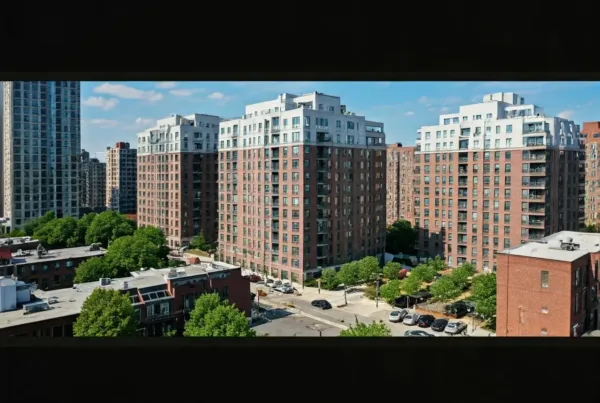Curious about real estate jargon? Discover the ins and outs of ‘sponsor units’ and how they can impact your investment.
Table of Contents
Introduction to Sponsor Units
When stepping into the world of real estate, you may come across the term “sponsor unit.” But what does sponsor unit mean? It’s an essential concept in real estate, and understanding it can help you make smarter choices.
A sponsor unit is a special type of apartment or unit in a building. It often stands out from other apartments because it is owned by a real estate sponsor. So, what is a sponsor meaning in english? In simpler terms, a sponsor is someone, often a developer or a company, who builds and sells properties. In the case of sponsor units, these sponsors have rights that other regular unit owners might not have.
These units are important because they can offer unique benefits to buyers and investors. As we go through this article, we’ll explore more about sponsor units and what makes them a key part of the real estate market.
What Does ‘Sponsor Unit’ Really Mean?
When we talk about what does sponsor unit mean, we’re looking at a special kind of apartment or unit found in buildings. So, what is a sponsor unit? It’s important to understand that these units are a bit different from the other apartments in the same building. Let’s break it down more so we can see the big picture clearly.
Definition and Explanation
The term sponsor unit meaning refers to apartments that are owned by the developer or the company that built the building, known as the real estate sponsor. An easy way to think of it is like this: if the building is a big puzzle, the sponsor units are the pieces that the builder keeps for themselves. This means the builder can rent, sell, or do whatever they want with these apartments.
For example, if a new building has 50 apartments and the developer keeps 10 of them, those 10 are considered sponsor units. They might be sold directly to buyers without the usual rules that other units follow, making them unique.
How Sponsor Units are Different
So, how do sponsor units stand apart from the other regular units in a building? Well, the main difference lies in ownership and rules. Sponsor units typically have fewer restrictions when it comes to buying or selling. Many regular units might require a buyer to get approval from a homeowner’s association or the board. But sponsor units often do not. This means buyers can act more quickly, which is very appealing.
Additionally, sponsor units can sometimes be offered at different prices compared to other units, making them an interesting choice for potential buyers. Since they are managed by the developer, the sponsor units may also come with special terms and advantages.
Role of Sponsor Units in Real Estate
Sponsor units play an important part in the world of real estate. But what is a real estate sponsor? A real estate sponsor is the person or company that creates and manages properties, often developing new buildings or apartments. Sponsor units are special parts of these properties. Let’s explore how they fit in and why they matter.
Sponsor Units in Co-ops
One common place to find sponsor units is in cooperative buildings, also known as co-ops. In a co-op, people don’t just buy individual apartments. Instead, they buy shares in the whole building. This is where sponsor units come in. A real estate sponsor might own several units in the co-op before they sell them to individual buyers. This helps the co-op get started. It can also make it easier for new owners to move in right away.
Investor Interests
Many real estate investors are very interested in sponsor units. Why? Because they can offer a good way to buy property. Investors might find sponsor units at better prices than regular apartments. This is because these units are often sold directly by the developer instead of through other owners. This direct selling can mean less competition. For investors, that’s a big plus! They can buy these units and then rent them out or sell them later for a profit.
Advantages and Disadvantages of Sponsor Units
Sponsor units have some great benefits for those who develop and sell them, known as real estate sponsors. One of the biggest advantages is that they give sponsors control over the selling process. Since they own the units, they can decide how much to sell them for. This can help them make a good profit.
Another benefit is flexibility. Sponsors can offer different types of financing options to buyers. This might include special payment plans that make it easier for people to buy the unit. It helps the sponsors sell these units faster.
Sponsors also benefit from good marketing opportunities. They can highlight the special features of these sponsor units to attract potential buyers. This helps them to create excitement and interest, which is crucial in the real estate market.
Benefits for Buyers
Buying a sponsor unit can be a smart choice for many people. One of the big advantages is that buyers often have more freedom in the buying process. They might not face as many restrictions, compared to buying a unit from another owner.
Additionally, sponsor units usually come with beneficial perks, like being able to close faster or having fewer co-op rules. For many buyers, this means a smoother buying experience. Sometimes, sponsor units can be priced competitively. This means that prospective buyers might find these units more affordable compared to similar ones on the market.
Possible Drawbacks
While sponsor units have their perks, there are also some disadvantages to think about. For sponsors, they might have to deal with extra costs related to marketing and selling these apartments. This can sometimes cut into their profits.
| Sponsor Unit | Explanation |
|---|---|
| Definition | A sponsor unit in real estate refers to a unit in a condominium or cooperative building that is owned by the developer or sponsor of the building. The sponsor often retains ownership of the unit until it is sold to a purchaser. |
| Benefits | Sponsor units are usually new construction units that may offer unique features not available in other units in the building. These units may also be offered at a lower price or with special financing options to incentivize sales. |
| Restrictions | Buyers of sponsor units may face restrictions such as limitations on subletting the unit or financing options. In some cases, buyers may be required to use the sponsor’s preferred lenders or attorneys. |
| Potential Risks | There is a risk that the sponsor may still own a majority of units in the building, which can impact decision-making processes and governance within the building. Buyers should carefully review the offering plan and financial health of the building before purchasing a sponsor unit. |
For buyers, there can be some downsides too. Although sponsor units can have fewer rules, it might also mean less information. Buyers might not get all the details they want. They may also have to pay higher fees as they navigate through the buying process.
It’s essential for both sponsors and buyers to carefully weigh these advantages and disadvantages before making decisions about sponsor units. Understanding both sides can help everyone make better choices in the real estate market.
How to Identify a Sponsor Unit
Identifying a sponsor unit can be a fun and interesting part of looking for a new place to live! Let’s dive into some tips that can help you spot these unique apartments when you’re checking out real estate listings or visiting properties.
Key Signs
There are a few key signs that can tell you a unit is a sponsor unit. First, look for specific terms in the real estate listing. Often, listings will use phrases like “sponsor unit” or “sponsor-controlled” to show that the unit is a sponsor unit. Another hint can be the details about how the owner is selling the apartment. If the listing says that the sale is not subject to board approval, that’s a good clue! This is because sponsor units usually don’t need to go through the same approval process that regular units do.
Also, if you see that the unit has been recently renovated or updated, that can be another sign. Sponsor units are often the same units that developers own, so they might be freshly improved. Finally, check if there are special rules or benefits mentioned. These can also indicate that you are looking at a sponsor unit, as they might come with certain advantages not offered with traditional units.
Questions to Ask
If you’re still unsure, asking the right questions can help clarify everything! When you’re talking to a real estate agent, you can ask, “What does sponsor unit mean in this context?” This question will help you get a clear explanation of the unit’s status.
You can also inquire, “Is this unit a sponsor unit co-op?” Asking about the type of ownership is super important. Another good question is, “Does this unit require board approval for the purchase?” If the answer is no, it’s likely a sponsor unit.
Lastly, ask about any special perks that come with the unit. Knowing more about what makes the sponsor unit unique can help you make the best choice for your new home!
Summary
In this blog post, we explored the concept of a sponsor unit. We started by answering the question, what does sponsor unit mean? A sponsor unit is a special type of apartment that is usually owned by a developer or a real estate sponsor. These units are important in the real estate market because they offer unique opportunities for both buyers and sellers.
We also discussed the meaning of sponsor unit and defined what a sponsor unit is in simple terms. A sponsor unit is different from regular units because it can have special rules and benefits attached to it. For example, owners of sponsor units sometimes have fewer restrictions when it comes to selling or renting their properties.
The article highlighted the role of sponsor units in real estate. We learned that real estate sponsors use these units to attract buyers and to sell properties more quickly. In a cooperative building, known as a co-op, a sponsor unit co op can offer unique advantages, making it easier for new buyers to purchase a home.
We also looked at the advantages and disadvantages of sponsor units. The benefits for sponsors include easy sales and potential profits, while buyers might find unique terms or opportunities that regular units don’t offer. However, we noted that sponsor units can also come with drawbacks, which is important to think about before making a decision.
Finally, we shared tips on how to identify a sponsor unit when you see one. This included looking for specific signs in listings and asking important questions when visiting properties. By understanding what does sponsor unit mean in the world of real estate, you will be better prepared to navigate the housing market.
Frequently Asked Questions (FAQs)
FAQ 1: Are sponsor units cheaper?
Many people wonder if sponsor units are cheaper than regular units. The answer is that it can vary. Some sponsor units might be priced lower because they are part of a larger building that the real estate sponsor is trying to sell. They want to attract buyers quickly. However, sometimes sponsor units can be more expensive. This is because they may have better features or be in a great location. So, it really depends on the specific unit and the real estate market.
FAQ 2: Can anyone buy a sponsor unit?
Yes, generally, anyone can buy a sponsor unit! However, there might be a few restrictions. For example, in cooperative buildings (co-ops), some sponsors want to know more about the buyer before selling a unit. They may ask for details like your financial information to make sure you can afford it. But overall, sponsor units are available to many buyers, not just a select few.
FAQ 3: Do sponsor units come with perks?
Begin your search and start earning cash back!
Sponsor units can come with some neat perks! For instance, they might have special terms that make it easier to buy them. Sometimes, you might get a lower down payment or less strict approval processes compared to regular units. Additionally, owners of sponsor units might enjoy benefits like flexible financing options. These perks can make sponsor units really attractive to buyers!







